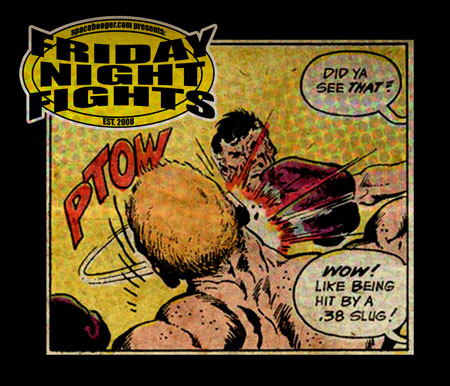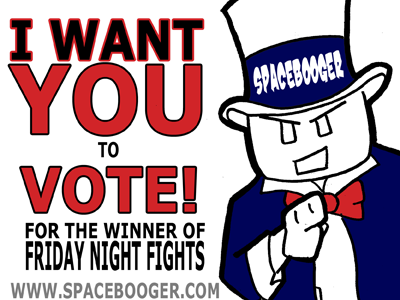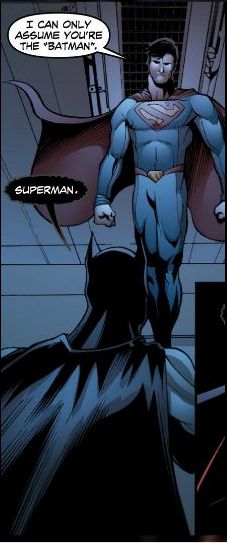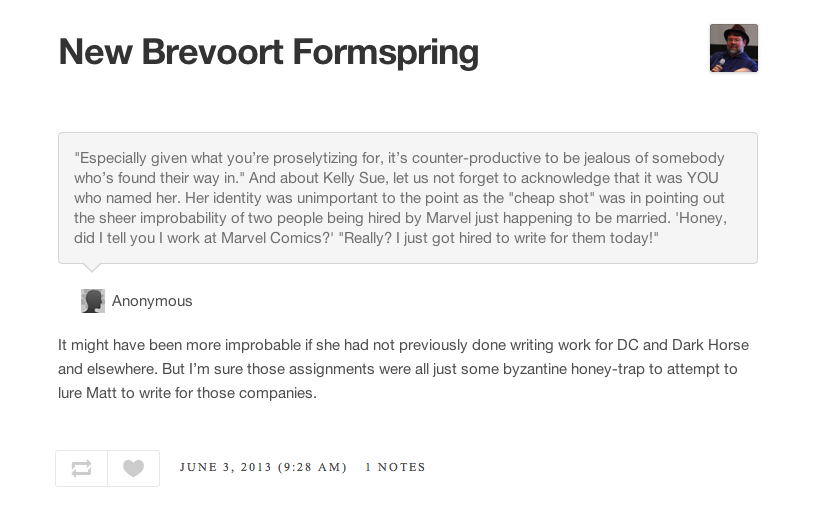After the Man Of Steel movie came out, various critics, bloggers, social networkers, and especially present and former Superman creators expressed a wide range of opinions. People loved it or hated it, were entertained by it or disappointed by it, felt deeply moved by it or felt deeply betrayed by it.
My feelings about the movie? All of the above.
There was a lot to like here. For example, in a film genre which often struggles to give us ONE memorable female character, this movie gave us FOUR. The filmmakers set up the nucleus for a wonderful Superman movie here, but ultimately they failed to deliver that movie. This wasn't a matter of the movie evoking a flat disinterest. It was more like an emotional roller-coaster ride. They did so many things right, but when they went wrong, they went horribly wrong. Some of the creative choices and alterations to the mythos ran the gamut from frustrating and infuriating to....head-scratching and bizarre.
This is a movie where the cause of Jor-El's death was.....stabbing.
One of those bizarre choices was the overall dreary coloring throughout the movie, both on Earth and Krypton. There were absolutely no bright colors whatsoever, especially on the Super-suit, which frequently looked like Supes had just returned from cleaning oil slicks. Years ago, my wife and I honeymooned in Hawaii, and during those two weeks it felt like EVERY color there was brighter, more rich, more vivid, more beautiful. This movie? It was like the Anti-Hawaii.
You may be asking how I felt about Henry Cavill and Amy Adams' performances. I thought they were both worked beautifully with what they were given to do. Like Brandon Routh and Christopher Reeve before him, Cavill had the right mix of majesty and humble vulnerability in the role. And while my favorite live-action Lois remains Erica Durance, Adams was among the best versions of our intrepid lady reporter. My only complaint is that I wish the writers had given her more to do here. Much of this is understandable: Lois is a very smart lady, but she's neither a scientist nor a super Kryptonian, and many of the situations here were out of her established wheelhouse. Still, couldn't she have been the one to stick the "S" key in the slot? Also, I didn't appreciate the fact that she wasn't the one who officially named him Superman (I'm not counting when her voice got drowned out here). Because I guess unveiling the "Superman" name carries much more dramatic weight when it's done by "Nameless Army Grunt #6" than the leading lady, right, Zack Snyder?
The cast was perfect. Not a single miscasting in the bunch. All of the main actors nailed it. Even all of the minor supporting actors nailed it, from Michael Kelly as a different-looking Steve Lombard to Mackenzie Gray as Jax-Ur to even Joseph Cranford as the adult Pete Ross. Really, the only weaknesses with the actors here were what Snyder, Christopher Nolan, and David Goyer gave them to do, or, in many cases, didn't give them to do.
I don't know if it's because I'm a new dad, but nearly all of the scenes involving parenting resonated (with some glaring exceptions I'll get to later). I mean, REALLY resonated. We're talking "had to fight back tears in places" resonated. The most moving were the ones with Lara, first where she sees newborn Kal-El for the first time (which brought back my memory of first showing my wife our son in the delivery room only 9 months ago), and then again where she has to say her final goodbye to him. Lara has historically gotten very little to do in the Superman mythos, but here Ayelet Zurer gives her scenes a special poignancy and grace. Too bad Lara had to die alone and not alongside her husband, as is usually traditional in the mythos. Diane Lane's Ma Kent was another high point of the movie, especially the scene where she talks young Clark down from a breakdown after all his super-senses manifest in his classroom.
The male parental figures don't fare quite as well, despite strong performances by Russell Crowe and Kevin Costner. Here, the fault lies with the writing. Jor-El is terrific in the scenes where he's still alive, and even in the initial hologram scenes where he exposits to Clark. But then the film makes him Jor-El Deus Ex Machina, constantly rescuing both Lois and Supes and even providing Kal with his costume. This served to rob the title character of much of his agency in this story. Confession: As beautiful as Mark Waid's "on my planet, the S is for 'hope'" line is in Birthright, I've always liked the John Byrne explanation for the "S" insignia best: That it's not an El family crest but just a regular stylized Earth "S", which he used for his symbol because Lois Lane dubbed him "Superman" in her article. But now I can finally articulate why: Not just because it's simpler, but because it cuts down the predestination element and puts more choice in Clark's (and his parents') hands.
But of the two father figures, Pa Kent's portrayal was much more problematic. Again, Costner was great, but he was also greatly misused. Jonathan, along with Martha, is supposed to be one of the key architects in the development of Superman's moral code. I loved the scene where he's consoling Clark after the latter to hold back from retaliating against some bullies. I also loved the Geoff Johns-inspired "you ARE my son" scene. We needed more scenes like those two. Instead, we had a Pa who let himself be dominated by fear. At first, I could understand the conflict between his desire to protect Clark and his moral code, and even excused the "maybe?" line (sold perfectly by Costner) as the manifestation of this inner conflict. After all, he's not a professional superhero trainer like Professor X. But as the movie went on, I saw Jonathan embrace the wrong side more and more. It was heartbreaking to see Pa teach Clark the idea that there are acceptable collateral losses of life, when the very core of Superman's belief should be that no level of collateral loss of life is acceptable. Pa Kent was dead wrong.
And that by itself would have still been fine if the film later had Clark show Pa the error of his ways. The child can teach the parent valuable lessons, not just vice-versa. But no, the film reinforced Jonathan's erroneous thinking, to the point that Clark stood back and let Pa die rather than risk revealing himself, simply because Pa signalled him to. This was the first of many scenes that really took me out of the movie, because it was wrong on so many levels.
Pa's death scene rang false to me as a Superman fan for several reasons. First of all, let me give you all some context on Pa Kent's history. I've seen or read virtually every iteration of of Pa dying in various Super-continuities, and, other than the one shown in Man Of Steel, they all share one common thread: They were all deaths that Superman could not have foreseen or prevented. Even in the version where Clark was the most culpable, Smallville's "Sacrifice" episode, there was no way he could have seen the events leading to Jonathan's fatal heart attack coming. All of Pa's (and Ma's) deaths prior to this movie have been beyond Clark's control. And, traditionally, there's been a good reason for that. Pa dying is meant to signify the limitations of Superman's abilities: For all his powers, Clark can't save everyone, not even everyone he loves. But, in order for this to work, Pa's death must NEVER BE A PREVENTABLE DEATH.
Yet in Man Of Steel, not only was Pa's death a PREVENTABLE one, but it was an EASILY PREVENTABLE one. All Clark had to do was whisk Jonathan out of harm's way at super-speed and zoom off without anyone seeing him. That's it. Essentially, Pa died because he didn't trust Clark to do something that Tom Welling's Clark routinely did at least once every "Smallville" episode. The real problem to be resolved wasn't that Clark needed to learn to trust Jonathan. It was that Jonathan needed to trust Clark. Because Clark was dead right and Jonathan was dead wrong.
You could argue that most of this movie was the repercussions of Jonathan being wrong. Think about it. Pa kept blathering about how Clark had a great destiny, but his paranoia became a major impediment to his son achieving that destiny. Without Pa's paranoia, Clark would have become Superman years earlier than age 33(!). Think of how many more lives he could have saved. Think of how much more experience as a superhero he would have had. Think of how he would have learned to trust humanity earlier. He may have had the chance to actually bond emotionally with the people of Metropolis. (Other than The Divine Ms. Double-Hockey-Sticks and Zod's would-be heat vision victims, did Superman rescue any individual Metropolis citizens here?) Perhaps seasoned enough to avoid the "impossible" situation at the movie's end and the mass destruction in this film. By fear rule him, Pa Kent retarded his son's development both as a hero and as a man.
Pa's death here even rang false for me as a human being. If it were my dad in that situation, and I was in a position to easily save him, I wouldn't have cared whether he thought I trusted him or not. I would've gotten him out of danger and flat-out told him "Fuck that, Dad! I'm not going to let you piss your own life away just to prove I trust you! Even people we trust can be wrong and YOU ARE WRONG HERE!" Some personal history: I lost my father to cancer nearly three years ago. If I'd had the means to completely cure him back then, I sure as hell wouldn't have sat on that cure just because he told me the world wasn't ready for a cancer cure.
The next parts of the movie were entertaining, if occasionally perplexing (Earth people can't breathe Krypton's atmosphere?). We got to see some great trust-building between Clark and Lois. We learned what happens when you threaten Clark's mother. Best of all, we got to see the truly awesome spectacle of Antje Traue's Faora in action. But then...
I can pinpoint the exact moment the movie went south for me for good: It was when Zod gave the order to activate the "World Engine". Then the movie stopped being about Superman and became more about inflicting a ton of shameless destruction porn upon the audience. And I use the word "porn" quite literally. I kept asking myself: "Does Zack Snyder go home and jerk off to buildings getting demolished every night?" Because there was a lot of property damage in this movie. There was also a flood of 9/11 "homages" here, something I'm sure New Yorkers had to be "thrilled" about. By the time Jenny (Olsen?) exclaimed "He saved us!" while Metropolis was a smoking crater, I wanted to ask her (and myself): Exactly what part of Metropolis did Supes save?
(The one redeeming aspect of the World Engine part of the story was the "guardian" Superman fought, a morphing silver tentacle creature that evoked fond memories of some of the weird Bronze Age creatures Curt Swan and Jose Luis Garcia-Lopez routinely unleashed on our hero.)
And then we come to the worst part of the film: The ending with Zod. Where Superman just stone-cold snaps Zod's neck and kills him. This was the part where my feelings of hate, disappointment, and betrayal really kicked in. I found it hard to believe that Superman couldn't think of any other way to subdue Zod when I thought of at least TEN while I was watching the scene.
The thing that made it worse afterward was reading Snyder's explanation for that kill scene, which I learned about from Brian Snell, who himself lists several non-lethal methods of subduing Zod here. Here's Snyder's rationalization for that scene:
"And the why of it was, for me, that if it’s truly an origin story, his aversion to killing is unexplained."
"Unexplained"? Gosh, Zack, where could Superman possibly have learned that killing is wrong? From his parents, maybe? From his teachers? From that church you had him visit, perhaps? You know, the one that specifically teaches the "Thou shalt not kill" Commandment? How about from that Jesus guy to whom you kept taking great pains to compare him throughout the movie? Other than in "Family Guy" and "Saturday Night Live" parodies, I don't remember anything about Jesus stone-cold killing people. Seriously, Zack, how did you learn that killing is wrong? Did you have to snuff out a life first? I know I sure didn't.
And if you still felt that there was no adequate prior explanation for Clark's anti-killing code in your movie, here's a radical idea: WRITE ONE! Maybe instead of scene after scene of Pa saying "Trust no one!", maybe write a scene where Pa and/or Ma specifically tells Clark that killing is wrong. Would that be obvious enough?
Here's some further elaboration of Snyder's motivation for the killing scene:
He said that after Zod’s purpose was taken from him, he was nothing but a killing machine, and there was really no putting him in jail and walking away. He compared Zod’s actions to “suicide by cop,” tying it back to the repeated use of “a good death is its own reward” in the movie. The warrior bred, Snyder said, felt that if Kal-El was capable of killing him, then that was an honorable way to go after having failed his people.
So, in other words, killing Zod gives the villain exactly what he wants.
And that alone is reason enough not to kill Zod. Here's the thing you're not seeing, Zack: Zod and his fellow Zoners didn't deserve honor in this movie. Zod didn't earn it. He threatened to destroy Earth if Clark didn't turn himself over to them, but then when Clark turned himself in, Zod went back on his word and tried to destroy Earth anyway! You call that "worthy of honor"?
So what better way is there to stoke the audience's schadenfreude toward Zod than by denying him that easy way out? Letting him live forces him to suffer the consequences of his decisions.
 |
| From Invincible#103. THAT'S how you punish a Kryptonian-level villain. |
It's the ultimate
"fuck you" to Zod. It's what
Superman would do.
The fact that Snyder fails to see that suggests such an
ignorance of the source material he's working with that it makes me
question his very reading comprehension skills. After all, this is the "Watchmen" director who
had Silk Spectre II call herself "Laurie Jupiter" and felt that the best way to accentuate
Ozymandias' "catching the bullet in his bare hand" moment was to
armor up his costume so heavily that he could
take three point-blank to the chest. Goyer was more disappointing, as I've historically loved his movie work since
"Dark City". Still, he's a smart guy, and if the director had insisted "No, Superman doesn't kill, Dave. Find a better way.", he could have been pushed to devise one. He received
no such push from either
Snyder,
Nolan, or
himself, to
do better. Which is extremely frustrating in a movie about a character whose very
purpose is to
inspire us to do better. To
be better. To
find a better way.
And we
need inspirational heroes like that, both in real life and in our fiction,
more than ever today. In our cynical times, where it seems we can't go
one week without hearing about yet another betrayal by our formerly-trusted educational, religious, or political institutions, we need heroes who will
elevate us up to
their level,
not make us
wait patiently in the hope that
they'll eventually make their way up to
ours. As a
father, I wanted something featuring
my all-time favorite superhero that I could show
my son to inspire him to grow up to be a
better man. And it feels like the Zod cop-out ending
robbed me of that.
As a summer action movie,
"Man Of Steel" was exciting, well-acted, and entertaining pyrotechnic popcorn fare. As a great Superman movie, this MOS came
so close, yet remained....
so far away.


























